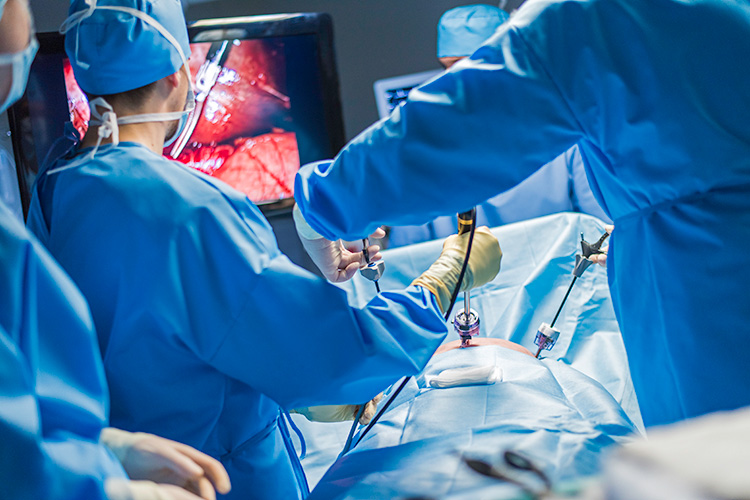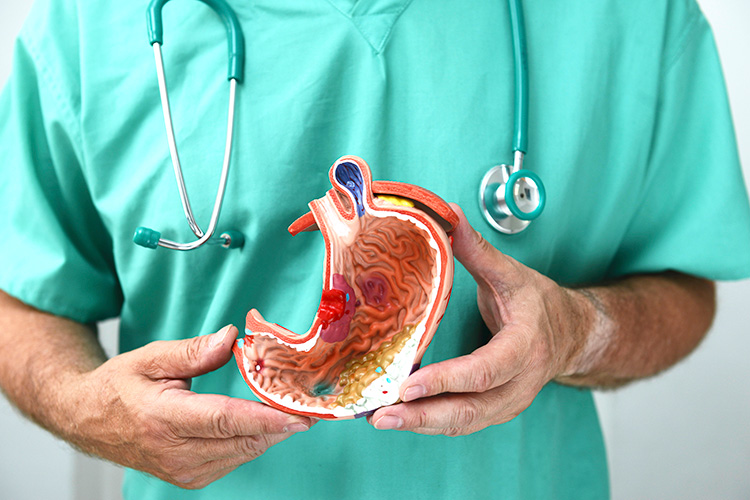Our surgeons not only specialize in general surgery, but provide trauma and critical care medicine. We use the latest technology and advanced techniques to provide minimally invasive procedures. Our services include but are not limited to the following:
General surgery
- Appendicitis
- Adrenalectomy
- Breast Surgery
- Colorectal Surgery
- Complex Hernia Repair
- Femoral Hernia Repair
- Gallbladder removal
- Hiatal Hernia/Reflux Surgery
- Lipoma Removal
- Inguinal Hernia Repair
- Pilonidal Cyst
- Small Bowel Resection
- Splenectomy
- Spigelian Hernia Repair
- Thyroidectomy
- Umbilical Hernia Repair
- Ventral Hernia Repair
Robotic surgery
Our physicians are certified in minimally invasive robotic surgery. Robotic surgery is a less invasive technique and offers several benefits, including reduced pain, minimal scarring, faster recovery, reduced risk of infection, and improved surgical precision. Surgeons make small incisions and operate using robotic arms and specialized instruments. A laparoscopic camera provides a high-definition, 3D magnified view inside your body. Every hand movement your surgeon makes translates to the robotic system in real time. The most commonly performed robotic surgeries at our facility include reflux surgery, gallbladder removal, and colon surgery.
Laparoscopic surgery

Laparoscopic surgery is a minimally invasive technique used commonly among our physicians to diagnose, treat, or remove organs or tissue. This technique benefits the patient in many ways including reduced blood loss, small incisions leading to less pain, scarring, and recovery time, as well as a shorter hospital stay. The surgeon makes small incisions in the abdomen, and a laparoscope with a camera is used to visualize the organs inside. The surgeon manipulates laparoscopic instruments, and view the operating field on a monitor. The most common laparoscopic procedures include appendix removal, gallbladder removal, and hernia repair.
Acid reflux surgery

If you have persistent symptoms of gastroesophageal reflux disease (GERD), you may have a hiatal hernia and may benefit from a hiatal hernia repair with transoral incisionless fundoplication (TIF).
Transoral incisionless fundoplication is a minimally invasive procedure to treat acid reflux or heartburn, and other symptoms associated with chronic gastroesophageal reflux disease (GERD). These symptoms are caused by a malfunctioning valve that allows stomach acid into the esophagus.
TIF aims to strengthen the lower esophageal sphincter to prevent acid reflux by creating a partial fundoplication without any abdominal incisions.
Small hiatal hernias can often be repaired during the TIF procedure alone. Hiatal hernias larger than 2 centimeters need to be repaired before the TIF with a Robotic Hiatal Hernia Repair. TIF is a less invasive procedure than Nissen fundoplication, the surgery traditionally performed to repair the valve.